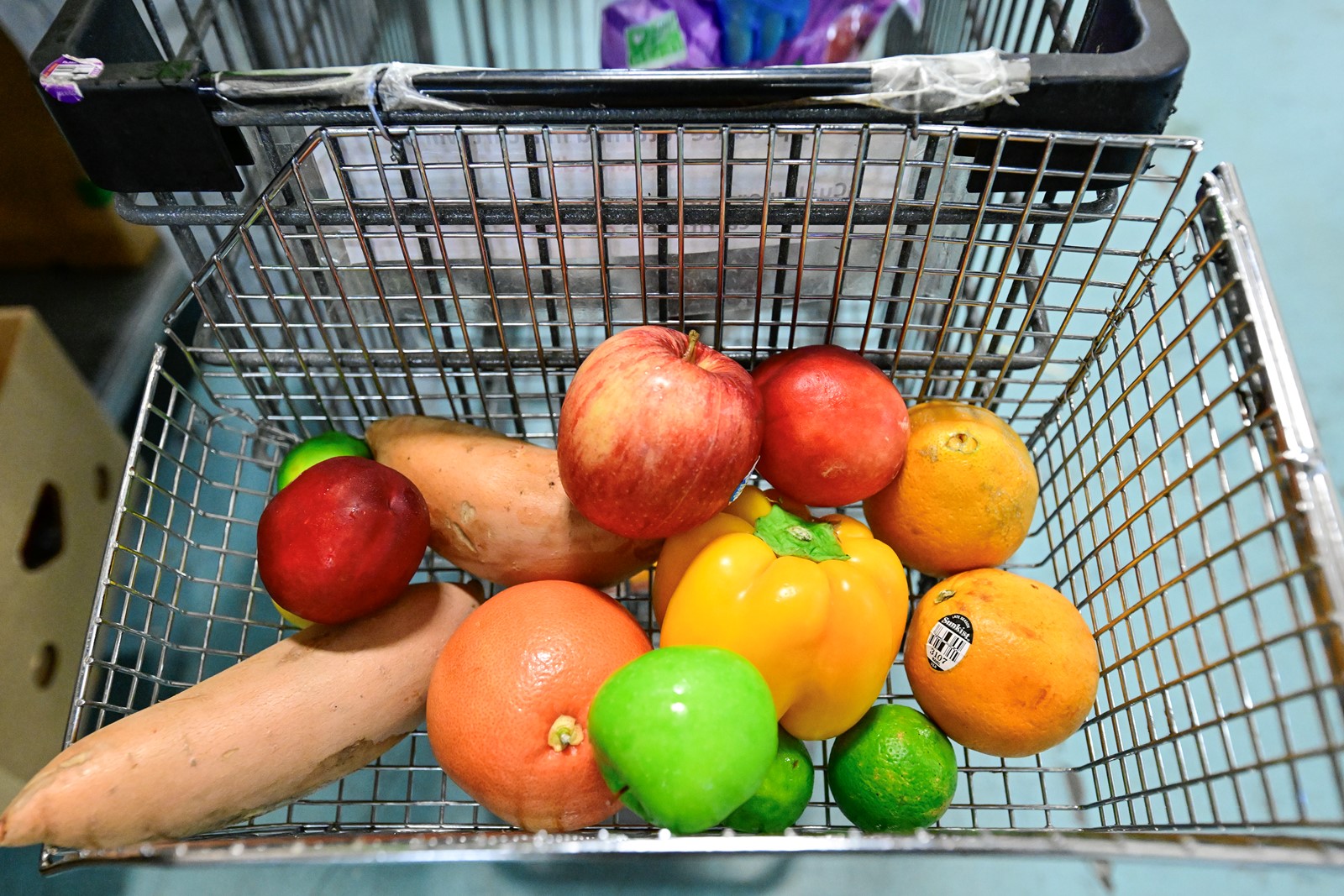
Louisville nonprofit Community Food Share expects more Boulder County and Broomfield County residents to turn to the food bank for meals as funding cuts target food stamps.
In a virtual town hall hosted by Community Food Share on Wednesday, the nonprofit discussed some of the challenges it anticipates in the wake of the spending cuts bill passed by the U.S. Congress last week.
The bill includes $1.2 trillion in cuts to Medicaid and the Supplemental Nutrition Assistance Program. SNAP offers monthly benefits to low-income families to help them purchase food.
Addressing over 50 meeting participants, Food Share CEO Kim Da Silva acknowledged that there has been a lot of curiosity about how the new bill will impact the local community.
Community Food Share serves Boulder and Broomfield counties.
Data provided by Feeding Colorado, a coalition of five Colorado food banks including Community Food Share, shows that SNAP currently supports 615,000 Colorado residents. This includes 19,358 people in Boulder County and 3,631 people in Broomfield County.According to Feeding Colorado, 298,000 Colorado families will lose some or all of their SNAP benefits because of the budget reconciliation bill.
Da Silva said this is coming at a time when food banks and pantries are already dealing with an increased need for their services.
“We were looking at becoming stretched beyond our resources before we had a bill come along that is going to make it much harder for all of us to do our work,” Da Silva said.
Most of Community Food Share’s food is distributed by its local nonprofit partners such as Longmont’s OUR Center, Lafayette’s Sister Carmen Community Center, Broomfield FISH and Meals on Wheels Boulder.
The nonprofit has onsite and mobile pantries, as well.
In 2024, Community Food Share distributed around 13 million pounds of food.
Community Food Share also buys food to make up for what isn’t being donated. Previously, the nonprofit has relied on state grants for food reimbursement.
“Those grants are not available at the same levels that they’ve been in the past,” Da Silva said.
Because of that, the nonprofit will have roughly $1.5 million this year to purchase food. Last year, Community Food Share spent $2.4 million on food.
This means that the variety of food the nonprofit purchases going forward likely won’t be as high as it once was.
For example, Da Silva said, Community Food Share might buy fewer pineapples and more produce that is local, easy to attain and lasts longer.
“In the past, we had enough funding to be able to get a wide variety of items,” Da Silva said. “Now, we’re really focusing in on, ‘What do our partners need?’”
Da Silva also pointed to the high cost of living in Colorado as a reason why people experience food insecurity.
“Many people cannot afford to live here and have all the money they need for all their basic needs,” she said.
“That’s only going to elevate in these next couple of years.”
Kaleigh Wagner, director of philanthropy for Community Food Share, said people can support the nonprofit’s ongoing work by donating or volunteering.
“It might look and feel different, but our doors will always remain open to those who need our services,” Wagner said.
“We’re in it together, and these small little actions do make a really big difference.”


 PREVIOUS ARTICLE
PREVIOUS ARTICLE
